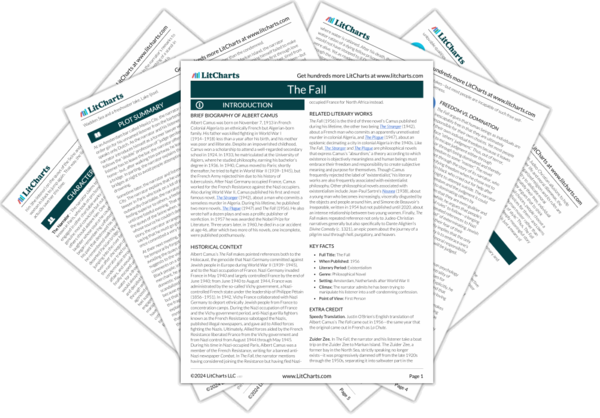The Dutch officially colonized what is now modern Indonesia as the Dutch East Indies from 1800–1945. In 1945, Indonesia declared independence, after which the Netherlands and Indonesia fought in the Indonesian War of Independence until 1949, a war that ended with the Dutch agreeing to recognize Indonesian independence. When the narrator claims that the Dutch live in an Indonesian dream world, he suggests that the Dutch are dreamily nostalgic for their colonial domination of Indonesia despite their reputation as hardnosed businesspeople—another example of humanity’s internal contradictions and hypocrisies. Meanwhile, his comparison of Amsterdam’s “concentric canals” to the circles of Hell in Dante Alighieri’s
Divine Comedy (c. 1321) again indicates that religious stories are useful lenses for understanding modern life even in the absence of religious belief. Finally, his odd claim that he avoids bridges so as not to encounter jumpers hints that he has had such an encounter in the past.


